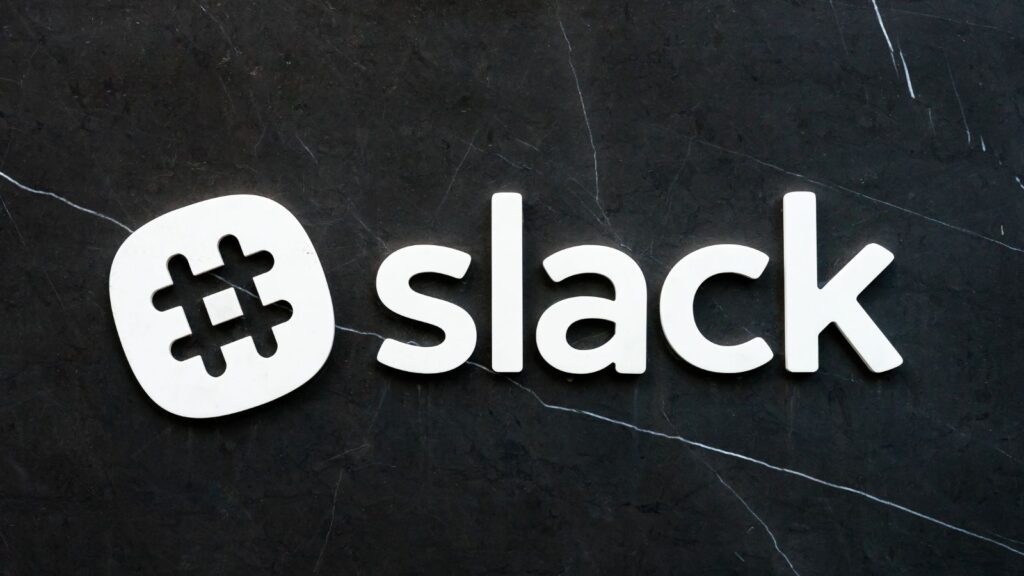Communication Is Key | Staying Connected | Why Slack and Not Email? | Growing a Business | Final Thoughts
If you look at the ways many small-business teams communicate today; it’s clear that things have shifted dramatically since the pandemic first hit. Teams that used to see each other in the office five days a week may now be on a hybrid schedule or fully remote.
And those that used to hire only in-office employees may have broadened their workforce to include global talent. All the while, they’ve had to find ways to maintain productivity.
Some remote workers say that working from home has had a negative impact on their sense of belonging. However, others report the opposite effect when collaboration tools like Slack come into play, according to a nationwide survey of knowledge workers conducted by the company. In fact, the survey found that Slack users are more productive and less likely to face slow, inefficient communication.
While Slack isn’t the only collaboration tool available, it’s certainly become more and more popular since the pandemic. I sat down with one Slack executive to discuss why Slack is one of the top platforms of its type. Meanwhile, I also spoke with an entrepreneur whose company uses Slack to find out what makes it essential for so many organizations.
Communication Is Key
Evan Streusand is the founder and CEO of Fortress, a women’s shoe company with a showroom in Austin, Texas. The shoes are all handmade in Peru using responsible production practices and are sold all over the world. “We make sure our shoemakers are well taken care of,” says Streusand, adding that Fortress primarily uses materials sourced from the region.
Fortress is a small company with just a handful of employees. In Austin, there are three full-time employees in addition to Streusand, plus a manufacturing agent who lives in Lima and works with the shoemakers. They also work with a small digital ads agency based in London. Yet despite its size, Fortress needs to maintain good communications among internal and external teams.
That’s something that Rachael Nazzaro, a solutions engineer at Slack, understands completely. Nazzaro’s primary job is to educate businesses on how they can best leverage the functionality that Slack offers.
Even with a company like Fortress that has few employees, Slack is an ideal communications tool. In fact, upon joining Slack three years ago, Nazzaro saw the value in small businesses like Streusand’s using Slack to stay connected. “I could immediately see so many use cases for Slack off the bat,” she says.
Staying Connected
No doubt, Slack works great for internal communications. However, it’s also great for staying connected with outside parties. For instance, Fortress uses Slack to communicate with its digital ads agency.
True, Fortress factory workers may not be on Slack. However, it’s still possible to bring in those external clients in very secure ways, Nazzaro adds — facilitating updates in “real-time, real fast.” People on the ground can provide information from their mobile devices instead of waiting to get to the computer.
Why Slack and Not Email?

There are still people who either prefer to communicate over email or simply aren’t aware of Slack’s capabilities. However, Slack sets itself apart from email with its ability to work with teams quickly and efficiently.
Meanwhile, Slack maintains an organized log of all communications. Nazzaro explains, “It all comes down to being able to have a Searchable Log of All Communications and Knowledge,” which, by the way, is what Slack stands for.
Streusand notes that he primarily uses email for infrequent communications — for instance, with stores that Fortress sells to. Otherwise, Slack is the go-to, real-time communications tool for the company. “It takes the place of texting,” he says. “We are in constant communication about the business, but we can keep it all organized in different channels.”
Ironically, even discussions about Fortress’s email marketing campaigns happen through Slack. From tracking visuals to reviewing copy, they do it all through a Slack channel.
Fortress also makes use of Slack’s huddles, allowing team members to be “live” with each other. So, if people work from home or a warehouse, they can be in the same “room” more easily.
“I’m rarely emailing people who work at the company with me,” Streusand adds.
Nazzaro notes that while it’s Slack’s goal to replace email with Slack communications, the company is realistic. There may be times when an email is necessary.
Even then, however, a simple integration allows people to forward emails to a private Slack channel. From there, they can respond to email messages and enjoy Slack’s capabilities without the hindrances of email.
Evan Streusand’s Thoughts on Growing a Business
Great communication tools like Slack are important for entrepreneurs with a growing company such as Fortress. Streusand shares two key factors for success that he’s learned along the way:
- Patience. “It was difficult for me at first to understand that it would take time to build this business,” Streusand says. “If you’re only taking the short view of things, you’re probably going to make some bad decisions.” Instead of thinking of the short term, take a longer view. It allows you to make better decisions overall.
- Work-life balance. “This is super important to us,” Streusand notes. The goal isn’t to be the biggest shoe company in the world; Streusand simply wants Fortress to be a company that “makes a really good product we can be proud of, and made in a way we can be proud of.” As a result, employees can find the time they need for family, exercise, and a life outside of work.
Final Thoughts
There will always be struggles that come along for any enterprise. For example, Streusand mentions the challenge of manufacturing shoes in a different country — one that is still trying to recover from the impact of the pandemic.
If anything, the roadblocks become even larger with a growing company. There’s more to do, more to create, and more to manage and communicate. However, things become more manageable by having Slack, the proper collaboration tool in place.
Nazzaro, for one, describes Slack as a place that feels like “home” for coworkers. People feel a sense of community even as they get work done.
“It was big for us during the pandemic,” Streusand adds. “Being able to communicate how we were through Slack was really helpful.”To speak with Slack about ways to increase productivity for your small business, go to Slack.com.







